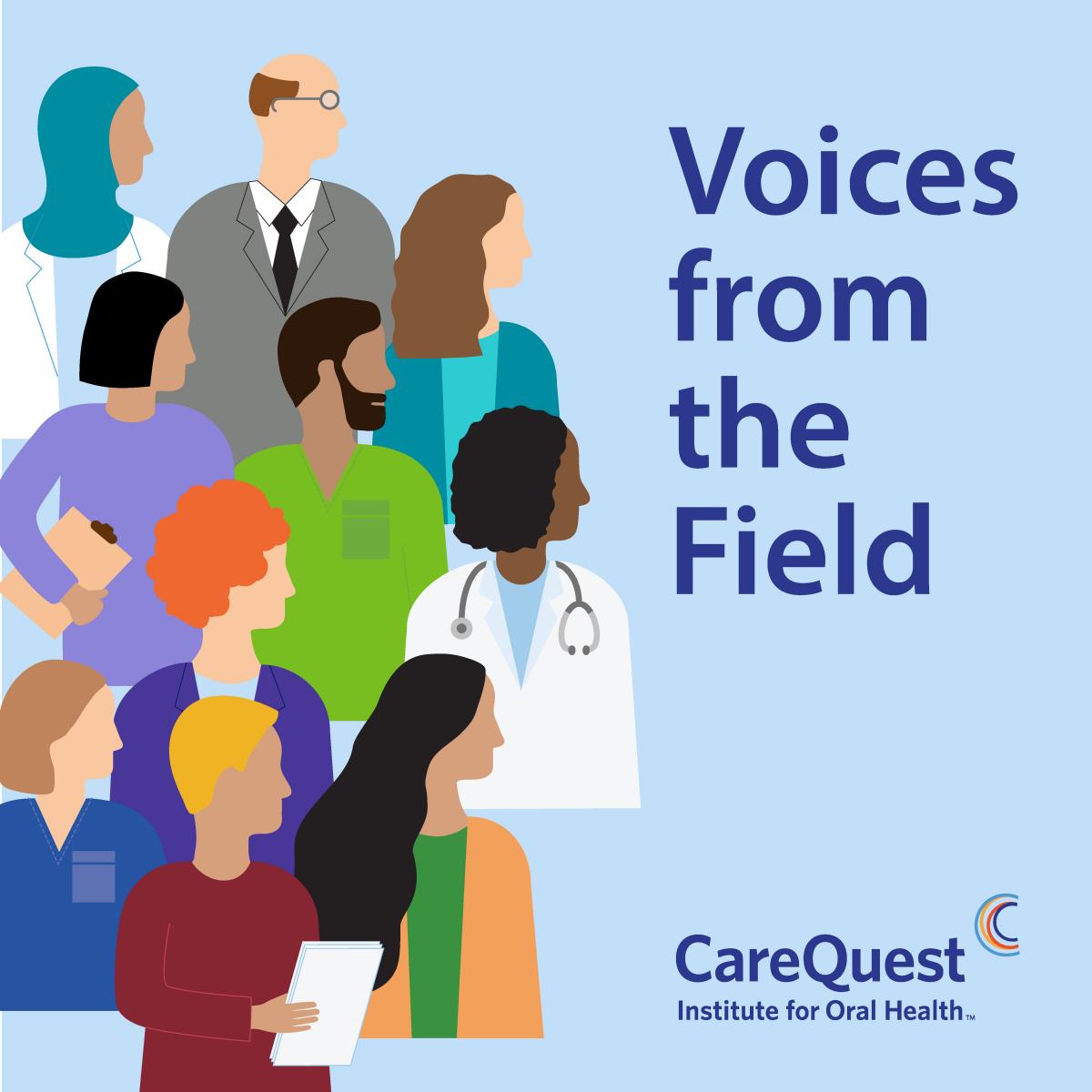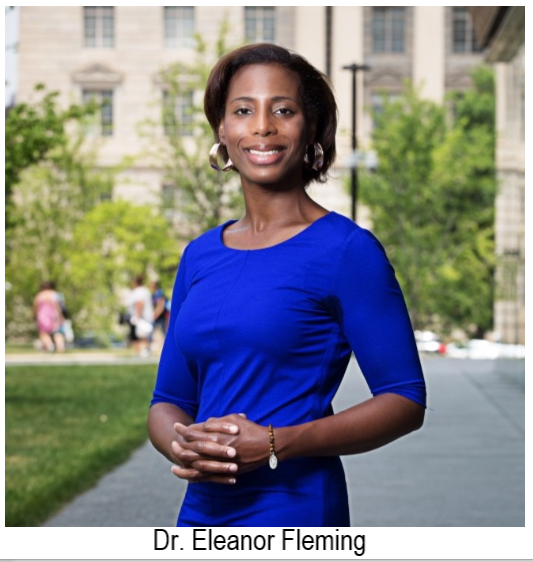Enter your email to receive the CareQuest newsletter:
July 19, 2021

Eleanor Fleming, PhD, DDS, MPH, is an associate professor in the department of Dental Public Health at Meharry Medical College in Nashville, TN. She’s also a Diplomate of the American Board of Dental Public Health and has worked for nine years as a dental epidemiologist. On top of that, she served as an officer in the Epidemic Intelligence Service at the U.S. Centers for Disease Control and Prevention, where she investigated disease outbreaks and was principal investigator on several studies.
Simply put, she’s someone who has a unique perspective on the challenges and opportunities facing the oral health industry.
Dr. Fleming took a few minutes out of her busy schedule to share her thoughts on living through the last 18 months as an epidemiologist, what she would like to see taught in dental curricula, and one step anyone can take today to start tackling inequity.
How did you get into dentistry? What pulled you toward that career path?
I found my way to dentistry through Dr. David Satcher and the first Surgeon General's Report on Oral Health. I heard Dr. Satcher speak about oral health disparities, and that information left me dumbfounded. I did not understand then  and don't understand now how it is that people do not have access to dental care. I grew up going to the dentist and saw dental offices everywhere in my hometown so that idea that people do not have access to care makes no sense to me.
and don't understand now how it is that people do not have access to dental care. I grew up going to the dentist and saw dental offices everywhere in my hometown so that idea that people do not have access to care makes no sense to me.
At the time, I was in graduate school pursuing my PhD in political science, but I changed course and found myself writing my dissertation by day and taking my pre-dental science courses by night at a local community college. I saw myself working in a community health center tackling the disparities. But then came the death of Deamonte Driver in 2007 and everything changed for me. I could not see myself being that provider; I had to be systems change agent. Deamonte Driver did not die for want of a dentist, as Mary Otto wrote. His death was a system failure. Because I understand policy and was entering dental school to learn the practice of dentistry, I envisioned a career in this thing called “public health.” At the time, I did not know what that meant, but I knew that I could not provide care at the individual level when change was needed to improve population-level health. And so, I became a dental epidemiologist.
What would you like to see taught to future dentists that isn’t part of the current curriculum?
As a new full-time faculty member in dental school, it is striking to me to see dental public health curricula that does not fully reflect the practice of dental public health. Pre-doctoral dental students are trained to provide clinical care to individuals, and yet dental public health focuses on prevention at the population level. While I realize those two ends seem to be in conflict, I believe that a prevention focus, especially at the system and institutional level, is important. I would love to see dental curricula that engages racism and social determinants of health in a very real way.
Can you share an example of a recent public health initiative that you’d like to see spread?
I would like to see how organizations are not only acknowledging that racism is a public health problem, but also identifying steps that are actionable to take. While public statements are important, I would like to see more action, more collaboration, more asking of tough questions, and more of a willingness to reimagine the systems and processes that reinforce racism and prevent equity.
There’s obviously no easy solution to systemic oral health inequity. But what’s one positive step anyone can take today?
Organize, organize, organize! I applied to Meharry Medical College envisioning a career where I would be the provider tackling community disparities. While that is possible for some people to accomplish, systemic oral health equity is a team sport and those of us who believe in oral health equity must be organized and working in collaboration with other groups at local, state, national, and global levels. One positive step that everyone can take is to join a group that is doing the work and lend support such as resources, time, and expertise.
What have the last 18 months been like through the eyes of an epidemiologist?
The politicization of public health has been shocking to me. I realize that I am a political scientist, so I should not be shocked . . . and yet here I am. It is heartbreaking to see wearing a mask as a political act. As an epidemiologist, I have been pleased to see more people paying attention to data and public health practice. I hope that the last 18 months have made clear just how important public health is and how underfunded public health systems are. As an equity issue, this becomes an opportunity to advocate.
When you look to the future of oral health, what concerns you?
When I look to the future of oral health, I am most concerned about workforce. Recent ADA data show that very little progress has been made to increase the number of Black, Hispanic, and American Indian dentists. This is a persistent disparity over the course of the last decade, and it is striking to me that more progress has not been made. I realize that this is big issue that cuts across CODA (Commission on Dental Accreditation), ADEA (American Dental Education Association), professional organizations, higher education, K-12 education, etc. This is an area where I hope progress will be made to support the recruitment and retention of Black, Hispanic, and American Indian students with sustainable pathways, mentoring support, and scholarships.
When you look to the future of oral health, what gives you hope?
I am hopeful about the future of oral health when I see advocates, researchers, and organizations that are not the usual suspects (not dental organizations or dentists) elevating oral health. I am hopeful to see states approving dental therapy programs which certainly requires more than dentists working as advocates. I am hopeful to see states including dental benefits in adult Medicaid programs. I am also hopeful to see value-based care becoming a reality and the shift happening to include and pay for prevention.
Editor’s Note: To hear more from Dr. Fleming, listen to a recording of the July 8 webinar, “Consumer Perspectives on Oral Health Access, Outcomes, and Quality of Care” or follow her on Twitter.